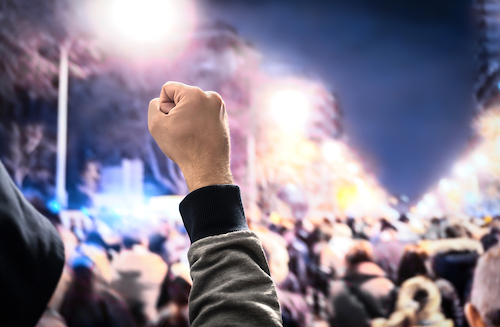 Have you ever wondered why some people react calmly to an upsetting situation, while others get fired up? Stanford researchers may have the answer.
Have you ever wondered why some people react calmly to an upsetting situation, while others get fired up? Stanford researchers may have the answer.
In a recent study published in the Journal of Experimental Psychology: General, psychologists from Stanford examined why people react differently to the same situation.
They found that personal motivation has an important role to play in how a person reacts to a situation. They found that if a person wanted to remain calm in an upsetting situation, they were unlikely to be influenced by angry people. However, if they wanted to feel anger, an angry person would have a strong influence on them. As well as this, the researchers found that those who wanted to feel angry were even more emotional if they learned that there were others as angry and upset as they were.
The researchers say this suggests people have more control over how their emotions may be influenced than previously thought.
“We show that people are influenced by the emotions of their social environment, but we also show that this is not a passive processes in which we catch other's emotions like we catch the flu, but rather we have the ability to control the influence others' have on our emotions,” Amit Goldenberg, lead author of the study and a Stanford doctoral candidate in psychology, told Theravive.
In undertaking the research, Goldenberg and colleagues set out to determine how people reacted to a situation that is upsetting, as well as how they respond to people around them. The researches enlisted 107 participants to participate in a laboratory study that explored people’s reaction and anger towards political charged events.
In the study, participants were shown images that might cause them to feel upset. These images included someone burning the American flag, or images of American soldiers abusing prisoners in Iraq. When the participants were shown the images, they were also told how others felt about them.
The psychologists found that those who wanted to feel less angry were three times more likely to have their emotions influenced by those who were displaying calm emotions than by those showing anger. Similarly, those who wanted to feel anger were more likely to be influenced by those who were angrier than they were over the images. Upon hearing that others were also angry, the latter group also displayed more emotion.
To see how emotions might be influenced in real time, the team also analyzed 19 million tweets in response to the shooting of Michael Brown by a police officer in Ferguson, Missouri in 2014.
They found that those who used Twitter were more heavily influenced by those who displayed strong emotions rather than those who showed calmer or less charged reactions.
“In the context of social media, people are often motivated to increase the influence that others' have on their outrage, which in turn leads to its perpetuation,” Goldenberg told Theravive.
“On social media, especially in political contexts, people seem to be motivated to express negative emotions for two reasons. The first is because they want to signal others that they care, and that they are active members of the community. Second, because they know that expressing emotions may help to convince others to join.”
Goldenberg says being exposed to such strong emotions on such a regular basis through social media, may also impact our own emotions.
“Social media has a huge effect on our emotions. We spend a lot of time on social media and we are exposed to a lot of emotional expressions, many more than before. Social media outlets are also especially saturated with emotions. This is because social media is dictated by attention economy, in which users compete for each others' attention. Expressing emotions is a very good way to attract attention. The fact that we are constantly exposed to strong emotions have an effect on our own affective states.”
Previous research has established that people may try and regulate their emotions when they think they are unhelpful. The Stanford research extends this idea by highlighting people are also capable of regulating how they might be influenced by the emotions of others. In the past, researches have worked on the basis that a person’s emotions are automatically influenced in an unconscious and immediate way to another person’s emotions, but this latest research suggests otherwise.
“Previously, people thought that we are passively active, but we see increasing evidence that we have much more control over the degree others' emotions influence us,” Goldenberg said.
“You have a choice on whether you are influenced by the emotions expressed around you or not. If you are motivated to be influenced by calming messages, you will feel calmer, and if you are motivated to feel angry - you will feel angrier. Both emotions can be helpful in some context and we need to think what would be useful for us.”
Elizabeth Pratt is a medical journalist and producer. Her work has appeared on Healthline, The Huffington Post, Fox News, The Australian Broadcasting Corporation, The Sydney Morning Herald, News.com.au, Escape, The Cusp and Skyscanner. You can read more of her articles here. Or learn more about Elizabeth and contact her via her LinkedIn and Twitter profiles.